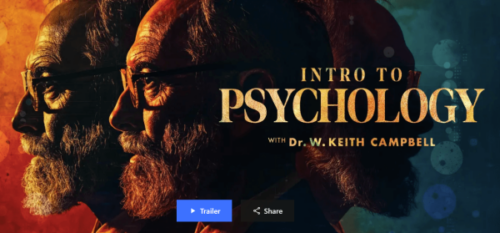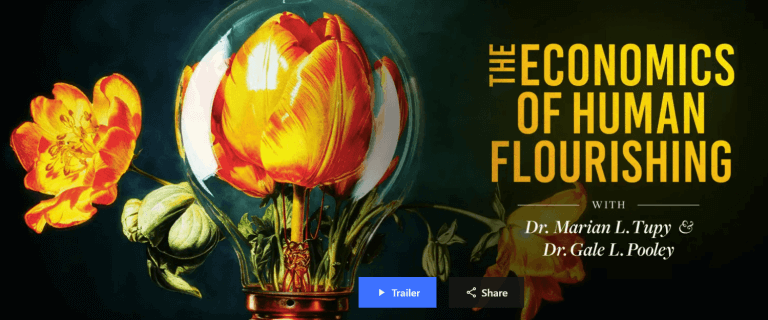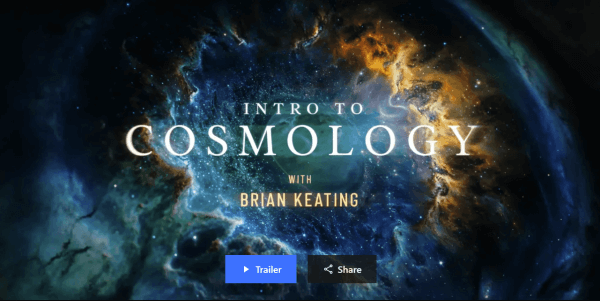Peterson Academy – Keith Campbell – Intro to Psychology

Dr. Keith Campbell
Psychologist
In Intro to Psychology, a nine-hour course, Dr. Campbell takes us on an exploration of the diverse field of psychology, from its historical roots to its modern applications. We examine how humans make sense of the world through mental models, cognitive biases, and social influences, and delve into the psychology of human development, motivation, personality, relationships, and mental health. Dr. Campbell concludes by highlighting the powerful impact of social psychology on individual behavior and the importance of navigating social influences wisely in an increasingly complex world.
Lectures
1. Roots of Psychology
In our introductory lecture, we dive into the history and scope of psychology, tracing its roots from ancient Greek philosophy to the diverse field it is today. Dr. Campbell highlights key figures and movements that shaped modern psychology, such as structuralism, functionalism, psychoanalysis, and behaviorism, and discusses the field’s evolution through the cognitive revolution and the advent of neuroimaging techniques.
2. Mental Models and Sense-Making
In lecture two, we reveal how humans make sense of the world by constructing mental models based on sensory input, motivations, and social influences. Dr. Campbell introduces us to the dual process theory of automatic and controlled cognitive systems, discussing various cognitive biases and the role of cognitive dissonance in maintaining internal consistency. The importance of shared social reality in shaping our perceptions and beliefs is also highlighted.
3. Psychology Throughout Life
In lecture three, we explore the field of developmental psychology, examining how individuals change psychologically over the course of their lives. The discussion covers key theories from influential figures such as Erikson, Freud, Bowlby, Piaget, and Kohlberg, and walks through the various stages of life from infancy to old age, highlighting the central challenges and conflicts individuals face at each stage. Through this discussion, we begin to understand the importance of developing both a sense of agency and the ability to connect with others throughout the lifespan.
4. Motivation and Maslow
In lecture four, Dr. Campbell delves into the psychology of human motivation, exploring various theories and models of motives. The lecture covers the distinction between approach and avoidance motives, intrinsic and extrinsic motivation, and conscious and unconscious motives. Using Maslow’s hierarchy of needs as a framework, we discuss the progression from basic physiological needs to self-actualization and ultimately self-transcendence, highlighting the complex nature of human motivation and the pursuit of happiness.
5. The Self
In lecture five, we turn our attention to the concepts of personality and the self from a psychological perspective. We study the Big Five personality traits model (openness, conscientiousness, extroversion, agreeableness, and neuroticism), discussing how these traits are measured and their impact on various aspects of life. The lecture then examines William James’s theory of the self, including the distinction between the “I” (the perceiver) and the “Me” (the self-concept), as well as the material, social, and spiritual components of the self.
6. Love and Attraction
In lecture six, we take a deep look at the psychology of relationships, focusing on attraction, love, and commitment. We examine how individual psychology shifts within a relationship, balancing individuality with profound connection. The lecture covers factors influencing attraction, including physical appearance, similarity, and situational elements like arousal and fear. We discuss models of love, such as Sternberg’s triangular theory and the colors of love, highlighting love’s complexity. Finally, we address the challenges of maintaining committed relationships today, emphasizing the importance of maintenance strategies, discipline, and effort in long-term partnerships.
7. Mental Health
In lecture seven, we venture into the field of clinical psychology and psychopathology, exploring the nature of mental disorders, their classification using the Hierarchical Taxonomy of Psychopathology (HiTOP) model, and various treatment approaches. Dr. Campbell emphasizes the complexity of mental disorders, the challenges in diagnosis and treatment, and the importance of a multifaceted approach to addressing mental health issues.
8. Social Navigation
In our eighth and final lecture, we explore the powerful influence of social psychology on individual behavior. We examine different types of social influence, including persuasion, conformity, compliance, and obedience, and discuss classic studies that demonstrate their impact. Dr. Campbell emphasizes the importance of understanding these social forces to navigate them effectively while maintaining a sense of self and making informed decisions. The lecture also explores group dynamics, highlighting the ease of forming groups, the role of groups in self-esteem maintenance, and the challenges of intergroup relations. Dr. Campbell concludes our course by underscoring the importance of social connections and the need to navigate social influences wisely in an ever-changing world.

















Reviews
There are no reviews yet.